The public is gloomy about prospects for the US economy, thinking the President should do more to create work, while a majority of Americans want to see a higher minimum wage.
How long is the country’s economic recovery going to take? When it comes to job growth, many Americans aren’t sure the great recession will end even ten years from its start in 2008, according to the latest Economist/YouGov Poll, conducted following the latest government jobs report.
Pessimism about the state of the economy has existed throughout the entirety of Barack Obama’s presidency, a presidency which began only months after the recession started and as the economy continued to deteriorate. Even now, after 37 consecutive months of job growth, Americans are significantly more likely to say the economy is getting worse than to see it improving. Asked whether there will be more or fewer jobs six months from now, Americans tend to be similarly pessimistic and expect the job numbers to decrease than to grow.
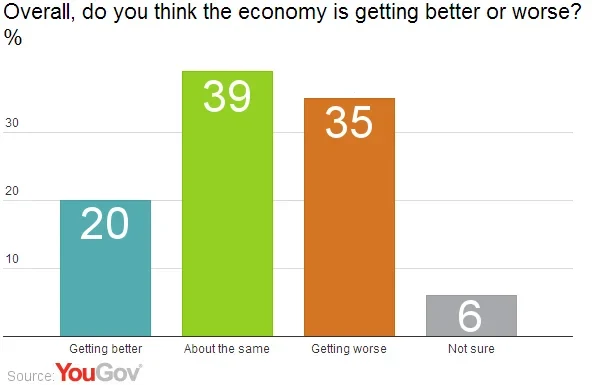
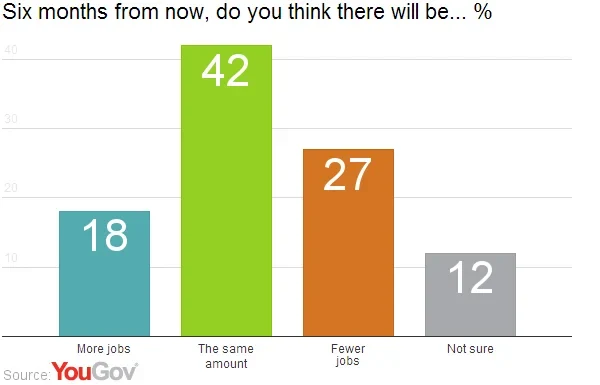
Although these poll results – like the economic statistics -- are far better than they were earlier in the Obama Presidency, they still are not good. And looking ahead, Americans don’t expect improvement any time soon. More than a third think that unemployment rates will rise in the next year; nearly a third expect they will continue to go up for the next five years. Fewer see the jobless rate dropping in either the next year or by 2018.
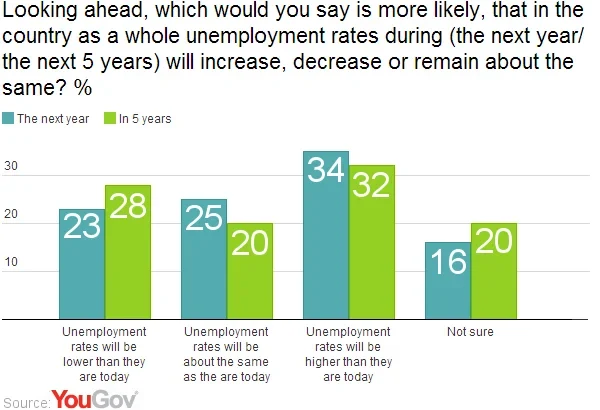
Job concerns may not be personal: only 12% of those currently employed say they personally are very worried they might lose their job (nearly a third are somewhat worried). But American concerns for jobs in the country as a whole are so strong that the public gives neither President nor Congress credit for doing enough to create new jobs. And in this case – as opposed to many other questions about the country’s economy – the criticism is bipartisan, with a majority of Democrats criticizing the Democratic President and most Republicans critical of the Republicans in Congress.
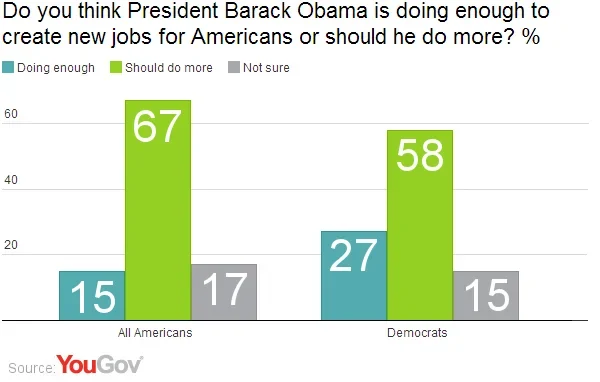
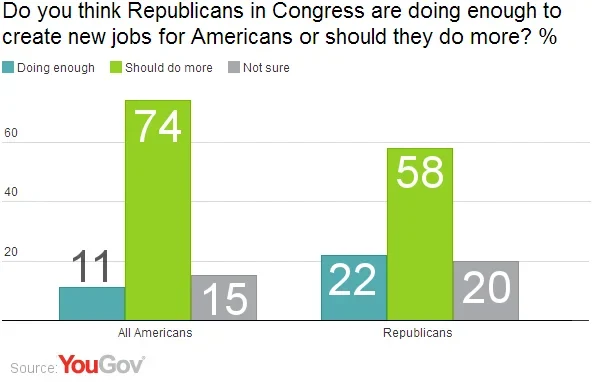
Americans seem content with the amount the government spends on unemployment benefits. 40% wouldn’t change the size of that expenditure, and people are as likely to want to increase spending on benefits as decrease it.
Most states provide unemployment benefits for six months, but the length of time has been extended because of the 2008 Federal Emergency Unemployment Compensation legislation. For 82% of American workers, that extension is critical, since they have either no savings at all, or only enough savings to last a few months.
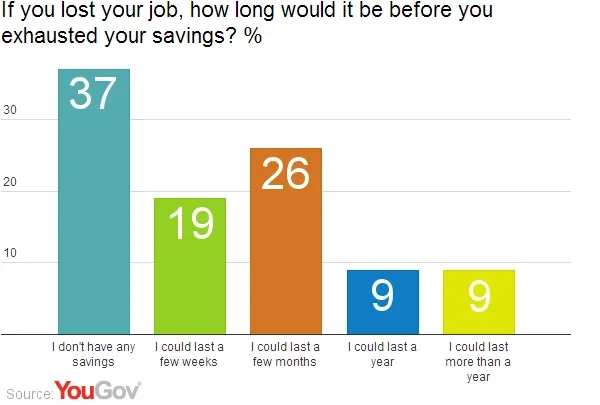
There is also a lot of support for raising the minimum hourly wage, which has remained at $7.25 for four years. Opponents of an increase worry that a rise in the minimum wage would eventually cost jobs, assuming employers would reduce hiring and fire some workers if they are required to pay them more than they currently do.
More than six in ten Americans believe the minimum wage should be raised, and more than a third think it should be significantly increased. There is also general acceptance of changing the minimum wage to $10.10 an hour, the rate in bills currently before Congress. Nearly half say $10.10 is the right amount for a new minimum wage. But Republicans aren’t ready for the change. Half of them think $10.10 is too high, and 52% don’t want the minimum wage changed at all. 37% of Republicans would raise the minimum wage, but most of those say that it should be raised only “a little bit.”
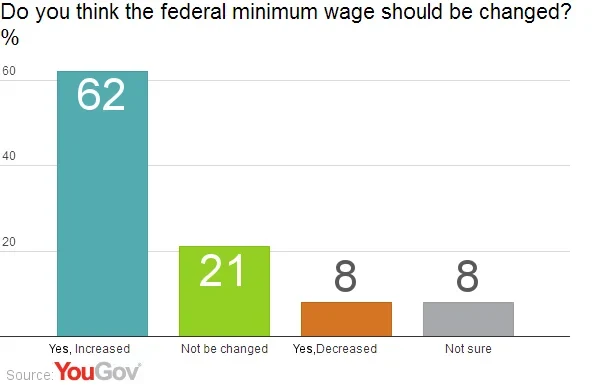
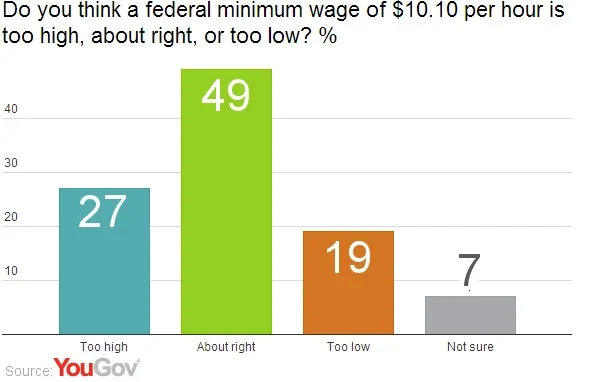
The President’s approval rating for his handling of the economy remains negative, as it has been for well over a year. This week, 35% approve and 55% disapprove.
Overall approval of the President’s performance remains low: this week, 40% approve and 53% do not, remaining in the range it has been for most of the year. Democratic disapproval, which rose in last week’s poll, is now back below 20%.
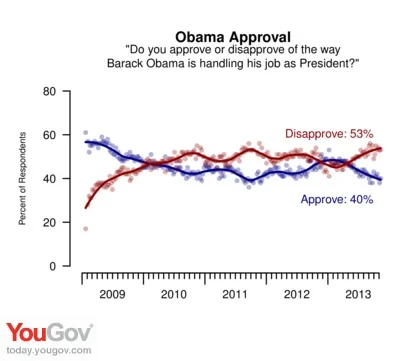
Full results can be found here.
Economist/YouGov poll archives can be found here.
Join YouGov today! Your views can shape the news...








